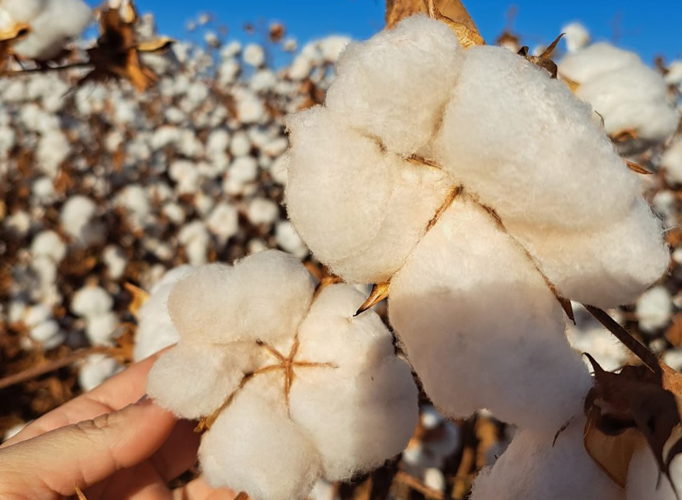
Between 18 and 29 July, the WFP Centre of Excellence against Hunger Brazil will travel to Tanzania for a field trip as part of the Beyond Cotton project. The initiative seeks to support smallholder producers and public institutions to connect cotton by-products (such as oil and cottonseed meal) and associated crops (such as corn, sorghum and beans) to reliable markets.
The mission will be carried out with the objective of: signing the country project for Beyond Cotton Tanzania; conduct technical visits in Mwanza in order to allow representatives of the Federal University of Campina Grande (UFCG), the Brazilian cooperating institution, to evaluate local specificities and visit the facilities of the Tanzania Agricultural Research Institute (TARI); and for the first meeting of the Country Project Monitoring Committee (CAP).
Cotton is one of the most important agricultural products in the world and its production is significant for the generation of employment and income, contributing to the food security of family farmers worldwide, being an alternative to overcoming rural poverty. An estimated 350 million people worldwide carry out economic activities related to cotton, which is one of the 20 most important commodities in the world market.
In Tanzania, for example, the agricultural sector plays an important economic and subsistence activity with approximately 40% of the national population involved. However, 70% of what is produced is exported, without adding value internally to the country. Cotton production in Tanzania provides room for development, as productivity is less than half the world average
Thus, in many cotton-producing countries, the main challenge is to find stable markets for cotton by-products and associated crops. There is usually a growing and safe market for cotton fiber. However, the sale of its by-products and crops grown in rotation with cotton can be a challenge.
Learn more about the project here.




